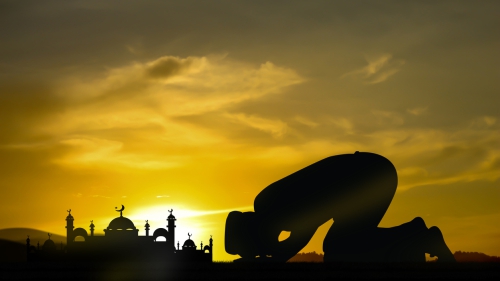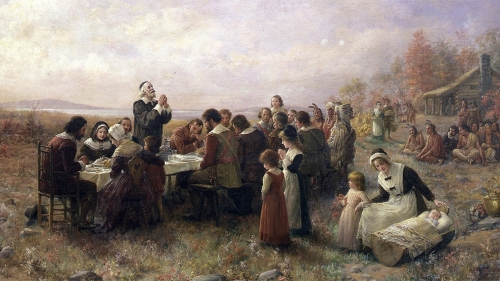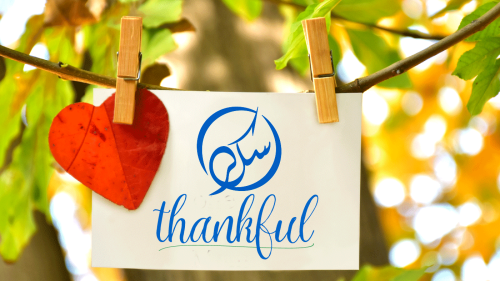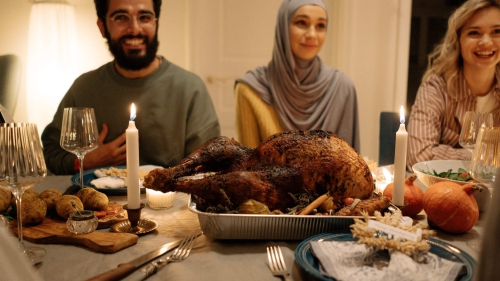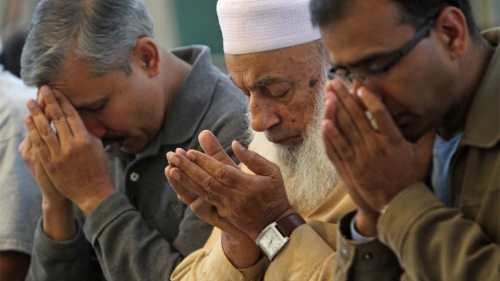Giving Thanks
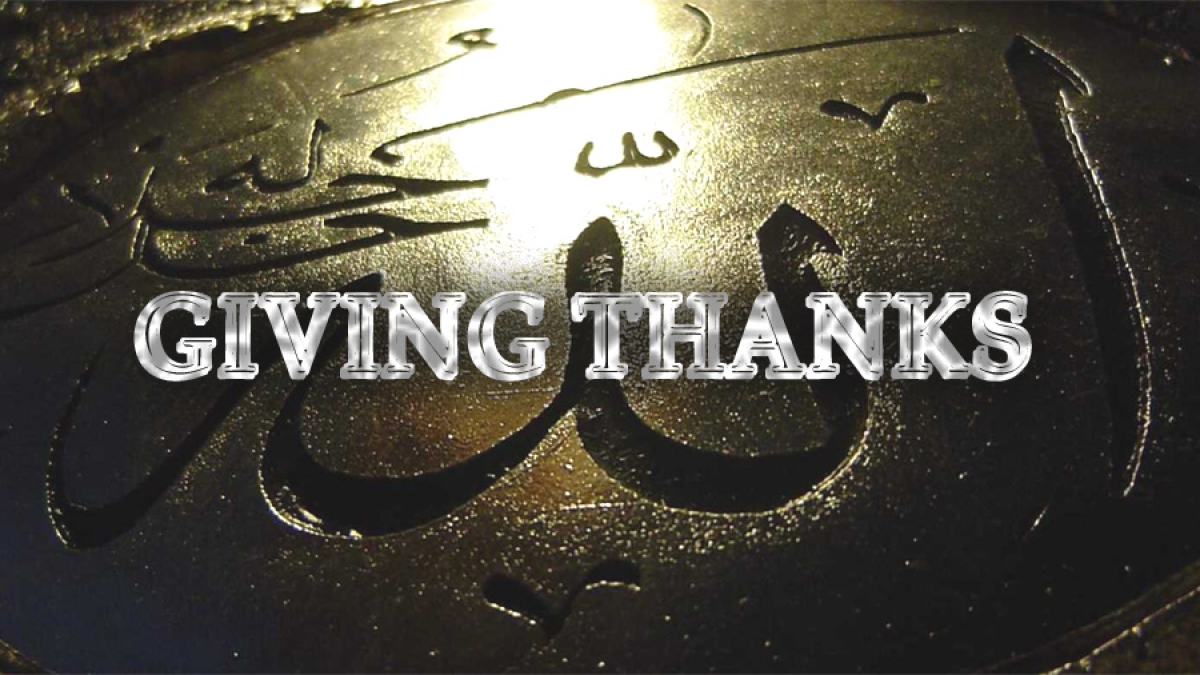
The Almighty says: "Remember Me, I remember you; Be thankful and not ungrateful." [Qur'an 2:152]. There is an emphasis on God-consciousness and on Gratitude in this divine injunction. This makes us realize that ...
- Gratefulness is a matter of the heart and truly grateful people are more spiritually aware and are more likely to appreciate the interconnectedness of personal life to human interdependence.
- True thankfulness to Allah means that we sincerely thank Him for his innumerable blessings; not by reminding others of what we have done in His Name.
- Gratitude is indeed the spiritual activity of the sanctified heart of a humble person.
Being thankful/grateful is an essential part of our faith and way of life. There are over seventy verses in the Qur'an pertaining to thankfulness. We must realize that as we journey through life we find ourselves in basically one of two situations; moments of ease for which we ought to be thankful, and moments of trials and tribulations through which we ought to patiently persevere. Prophet Muhammad [pbuh] therefore said: "How wonderful is the case of a Believer; If something good happens, he expresses gratitude; that is good for him - If adversity befalls him, he is patient and that too is good for him."
Thankfulness to the Creator
There are basically four words in the Arabic language, which are used in varying degrees to signify thankfulness, adoration, and praise. These are shukr, thanaa', madh, and hamd.
Shukr expresses recognition of benefits, gratitude, and thankfulness for favors received. Thanaa' denotes repetitive public acknowledgements. Madh means adoration. Hamd is neither pure madh (praise) for madh can be false; nor simply shukr (gratitude) but rather more than a combination of both. Hamdh implies admiration, sincere adoration, and heartfelt gratitude, expressed with humility. Hamd can therefore not be directed towards any other than Allah. "The ultimate form of praiseworthy gratitude is due to Allah, Cherisher of all existence" [Qur'an 1:2]
The concept of being grateful to Allah, is to realize and acknowledge that every kind of grace and favor is granted ultimately by Allah. In the Qur'an, [Qur'an 2:152] and [Qur'an 14:7] the opposite of shukr being grateful/thankful is defined by the term kufr disbelief, which is synonymous here with being ungrateful. This definition indicates the importance attached to being grateful and equates thankfulness to worship. "O you who believe! Eat of the good things that We have provided for you, and be grateful to Allah, if it is Him you worship". [Qur'an 2:172] The choice of a person in this world being grateful or ungrateful is explicitly considered a clear sign of faith or disbelief. "If you would calculate up the favors of Allah, never would you be able to enumerate them: Allah is Oft-Forgiving, Most Merciful." [Qur'an 16:18] Let alone counting up the favors of Allah, it not conceivable to categorize them. Since there is no limit to the favors of Allah, a believer should unceasingly keep himself occupied with the remembrance of Allah and express his gratefulness to Him.
Some people wait for special occasions only to render thanks to Allah; settlement of a major problem, recovering from a serious sickness, often before (but rarely after) exams ... However, if one reflects for a moment, he would instantly comprehend that he is always surrounded with infinite favors, at every moment, every minute, there is an uninterrupted flow of favors reaching him; life, good health, intelligence, consciousness, five senses, the air we breathe; in brief, everything that makes life possible is given to the human being as a ni'mah/favor and an amaanah/trust. In return for all these, a person is expected to serve Allah in gratitude. Those who are heedless of these favors and accordingly neglect to turn to Allah for expressing their gratefulness, only acknowledge the importance of these favors when they are deprived of them.
Thankfulness to Creation
Being grateful is to render one's thanks to someone who has shown favor, to express gratitude and to appreciate. The ethical dimension to gratitude demands genuine thankfulness proportionate to the blessings received, never to deny those blessings nor devalue the worth of those who so bless us. It is perchance with this in mind that our beloved Prophet reminded us: "Whosoever is not thankful to people is not thankful to Allah." Prophet Muhammad (pbuh) was asked, "Who are the best of people?" He said: Those who are cheerful when they do good, who are repentant when they do wrong, who are grateful when they receive, who show patience when in difficulty and pardon when they are angered."
*****
Shaykh Sadullah Khan is the Director of Impower Development International www.impowerinternational.com






